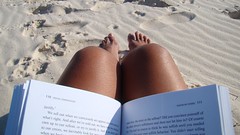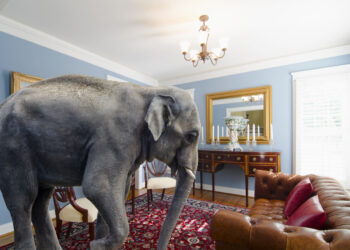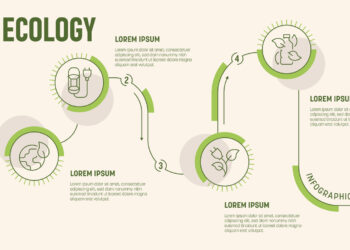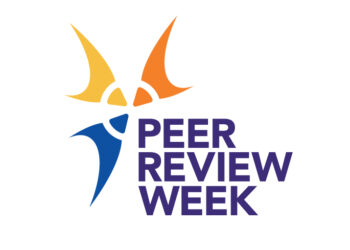
Now that we are in the hot stretches of August, the topic of summer reading is not a mere abstraction. I passed a bookstore the other day (yes, I was actually able to find one) that displayed a big sign promoting “Summer Reading.” As you would expect, the books were what is sometimes called beach books: mostly novels set in far-off lands, often wholly imaginary ones, where people do far-off things. Summer reading is thus not a transformative experience but a transportative one: you travel first from your ordinary domicile and place of work to the beach or mountains and carry with you a book or reading device, and you then plunge into the immersive world that is anywhere but home. In these worlds people move faster, live more exciting lives, solve huge problems, and manage to keep their weight down and have better sex.
The genre of summer reading attracts many lists, so here is a slice of my own “to read” list. I am currently knee-deep in what surely fits anyone’s definition of a summer read, Wilbur Smith’s River God (part of the Egyptian series, it says on the Web site). It might even qualify as a bona fide beach book if the beach in question were along the banks of the Nile. This is a silly book (the most formal English in the world can be found in the mouths of the protagonists of commercial fiction). But I find the narrative impulse irresistible. Where does this ability come from, the art of keeping a reader engaged even when you have nothing to say? Open up Stephen King’s 11/22/63, as silly a book as ever written, and tell me if you don’t read it to the end. That one was on my Spring Reading list.
There is perhaps more being said in the literary post-apocalyptic novel The Dog Stars, which I picked up earlier this summer while stranded, as I so often am, at an airport. I had more serious reading already loaded on my Kindle, but the prospect of several hours in the airport, followed by a six-hour flight to San Francisco, broke down my resistance. This is a good book and I recommend it to anyone who, like me, ponders why so many people have created an imaginative space to explore life after a nuclear holocaust or pandemic. The end of the world goes well with a latte at Starbucks, where I am sitting now, once again waiting for a flight that has been delayed for hours.
Is there perhaps another emergent genre, the stranded-at-the-airport book?
But now a fault line appears between summer reading and beach reading. How, for example, to categorize Balzac’s Cousin Betty, which I finally read after seeing a terrible movie version on Netflix? Balzac is transportative, too, but to a place that sharpens our insight into the “real” world, the one we actually, physically live in. So the scoundrel Eliot Spitzer is running for office! And Anthony Weiner! Who would believe it? Soon we will have Monica Lewinsky campaigning for the Senate. But these characters are nothing in comparison to the parade of villainy in Balzac. Is it still Summer Reading when we are fully engaged and emerge from the book with our brains buzzing from all the new neural pathways blazed by the author’s sentences?
This is why the next book on my Summer Reading list is problematic. I thought it was about time to reread the Bible and purchased an electronic copy of the King James translation. This is a purely secular reading experience for me (I first read the Bible as a student to understand the allusions to it in the poetry of John Keats), so the open access advocates who suspect the Kitchen of harboring creationists will have to look elsewhere. I am reading the superbly edited version from Oxford University Press. Of course, I could have gotten the text of the Bible for free from any number of online sources, and perhaps even in the hotel room where I will be staying tonight, but the Bible requires authoritative editorial apparatus. So I looked for a brand for protection and naturally found my way to OUP. At a time when there are so many new metrics for the value of a text, brand still trumps all.
I am beginning the Bible during the summer, but is it Summer Reading? I won’t finish it for months or longer; I will open it on an iPad in the middle of a sleepless night, read around a bit, get the aha! experience of recognizing the original of a story I have come across in other books, and then return to the mountains of white papers, market analyses, and spreadsheets that make up my professional life. I will turn from the Sermon on the Mount to Renee Register’s book on metadata. Which of these is more serious? Which is Summer Reading?
And so it is with so many other books I am trying to get to this summer. I have made a dent in John Updike’s Rabbit, Run (at the behest of a friend): is that autopsy of the American Dream Summer Reading? I still have to get to the books by Evgeny Morozov and Jaron Lanier, and when will I ever find the time for Yochai Benkler’s The Wealth of Networks, which both attracts and repulses me with the pretentiousness of its title? With the authority of the King James Bible behind me, I will happily skip William Patry’s Moral Panics and the Copyright Wars, but there are still so many books piled up or loaded and ready to fire on my Kindle: Sartre’s novel The Age of Reason, Sylvia Nasar’s Grand Pursuit, the Richmond Lattimore translation of The Odyssey, and dozens more. So much to read, so little time. What is Summer Reading but life writ large?
The fact is that for those of us involved in publishing, scholarly communications, research, or any of the knowledge-intensive industries, the flow of information is like a strong and steady wind. We put up our net to capture what we can, but what passes by, the swarm of butterflies, greatly exceeds what we can bring to our own attention. To be intellectually incomplete—harshly, embarrassingly incomplete—is a fundamental aspect of our existence. We can’t catch up. (Rather pathetic, is it not, that a 62-year-old is only now getting to Lattimore’s Odyssey.) What we call Summer Reading is but one facet of what we do every day, with varying degrees of guilt and anxiety.
And this is because research is itself transportative. A biologist travels to the far-off land of the future to determine whether the splicing of genes will correct a childhood disease, a classicist embarks to the third century BCE to contemplate what it means to walk the streets, where the air is fouled not by industry but the manure of horses. It’s all Summer Reading. We escape from the here and now every day and, putting matters of weight loss and better sex aside, we live each moment in a far-off land. It’s a magnificent enterprise and a wonderful vacation. Ah! They have just announced the boarding of my flight.
Discussion
7 Thoughts on "What Is Summer Reading but Life Writ Large?"
Lost Illusions would have been a better selection from Balzac.Part of the background to Lucien’s rise and fall is the change in technology (mechanical press and paper manufacturing) which brought down the unit price of publishing dramatically thus enabling publishers to employ journalists and create a new profession. Just as we have seen with the internet the issue of pricing models became complex. An extreme exampe was the manager of a theatre giving a magazine tickets which it could then sell on thus insuring that the magazine would give the play a rave review.
It is interesting that the recent even more extreme drop in costs with the internet could bring about the demise of the journalist.
This idea of “summer reading” got me thinking about my own reading habits. Though I’m a publisher of print and digital scholarly text, I do most of my personal reading now via Audible. At the end of the day, I can only make it through a page or 2 of written words before my eyes droop. But with audio, I’ve recently completed Middlemarch and a slew of other hefty classics I’ve “been meaning to read.” And I’m now 3/4 through the Bible, which I’d never managed in print.
Makes me wonder what this reading habit could mean for scholarly publishing. Could we attract larger or new audiences with audio articles for all those researchers who want to keep up but can’t find the time or energy to tackle all the reading? Time for an Audible for scholarly journals?
This idea that summer reading is somehow different from the reading one does over the rest of the year is fascinating to me. Do we not want our rest-of-the-year reading to be immersive and transportative?
Perhaps I am reading this with my fantasy novelist hat on instead of my scholarly publishing hat…
What came first, obsessive book reading or a career in the publishing industry? Summer reading or not I think it’s best to cull the book list to the bare minimum. Choose carefully taking into consideration most of all your gut feeling about not only what interests you but what might actually cause you to read more slowly. Gliding through a book is a sure sign that you’re wasting time with something of no value to you. All books are essentially junk food. All of them. One book in a lifetime might actually change or influence a person. The rest is conversational potpourri or at best fodder for daydreams.
Joe, I’m slowly making my way through Thinking Fast and Slow. Not a beach read, but it manages to open doors to new ways of thinking. Love to get together with you if you are in NYC on business. My office is just two blocks from Grand Central. Barbara Monteiro
Thinking, Fast and Slow is a wonderful book. And if you are finding it fascinating, you might also like Dan Gardner’s Risk and Future Babble.
There is another, relatively new tradition in summer reading that needs to be noted, viz., the practice of an increasing number of colleges (over 300 currently) to assign a book for all incoming freshmen to read. (There is a controversy over this practice running at the Chronicle, set off by Peter Wood’s ideologically inspired critique: http://chronicle.com/blogs/conversation/2013/08/19/the-compromised-life-of-common-reading-programs/?cid=at&utm_source=at&utm_medium=en.) My alma mater, Princeton, is taking this tradition one step further and inviting alumni also to read the assigned book and participate in discussions about it with the new freshmen in the fall. That’s a brilliant way, i think, to build bridges between alumni and current students and also to keep alumni engaged in the activities of the university. No doubt somebody on the annual giving office came up with this idea!


